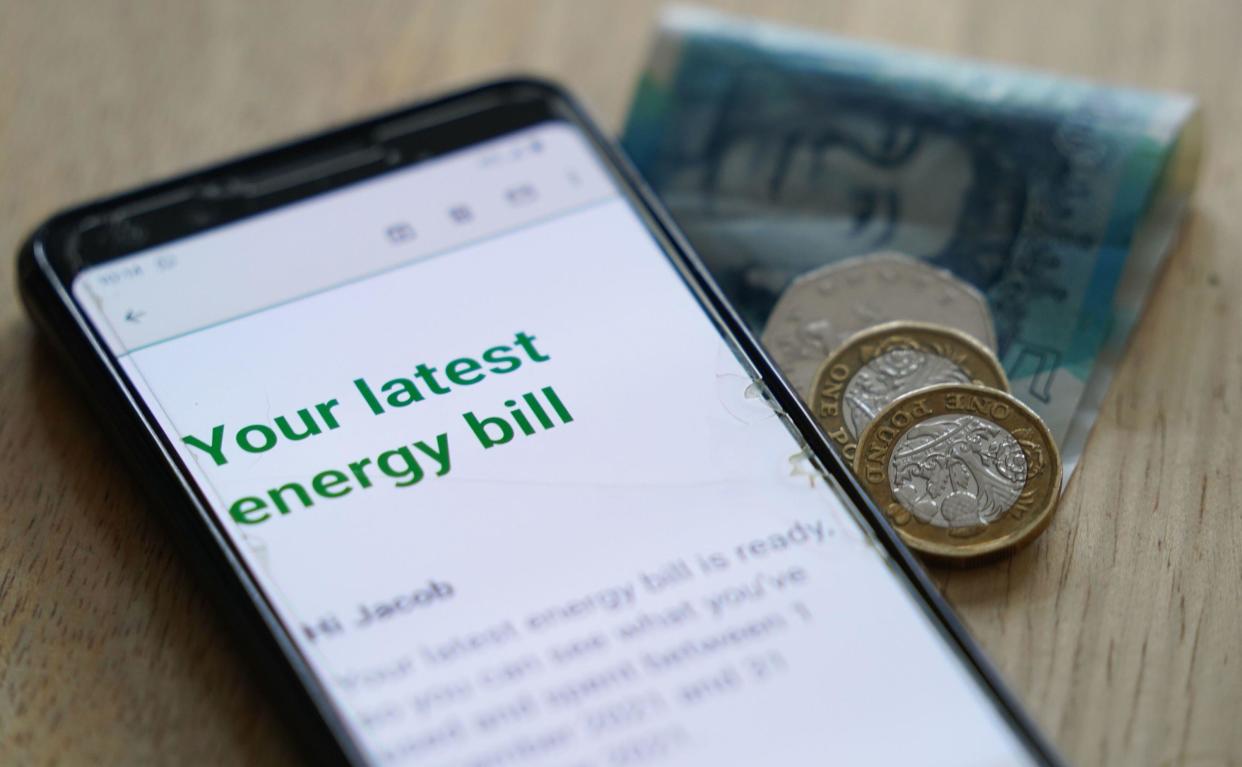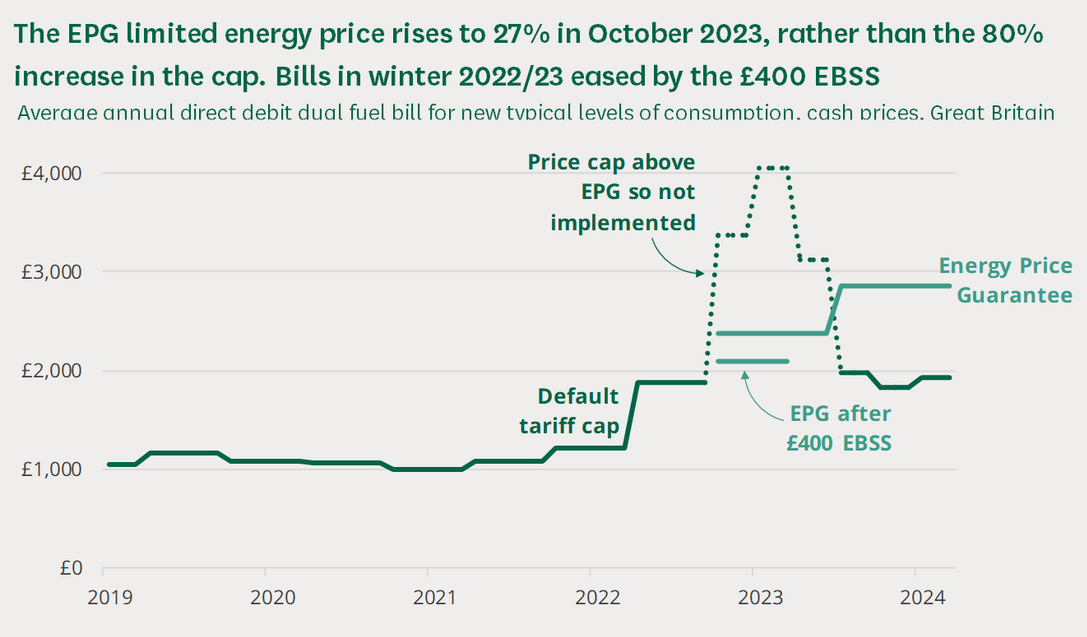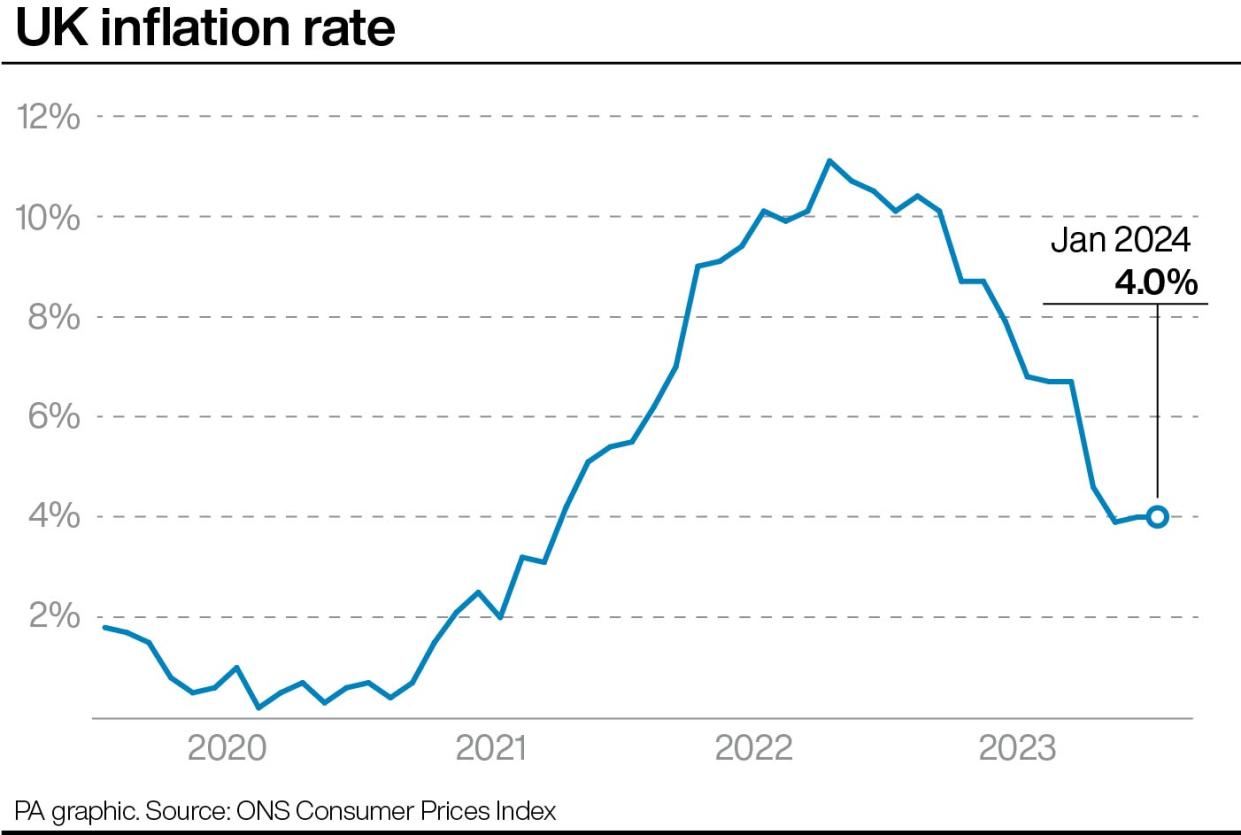When will the cost of living crisis end?

The average household energy bill will fall to its lowest cost in two years after Ofgem reduced its price cap in response to wholesale prices.
On Friday, the regulator announced it will lower its cap from the current £1,928 for a typical household to £1,690 from April. This is a drop of £238 over the course of a year, or just under £20 a month.
It means energy prices will be at their lowest since Russia’s invasion of Ukraine in February 2022, which caused a spike in an already turbulent wholesale energy market and drove up costs for suppliers and customers.
However, it's still well above the £1,277 price cap in place when the cost of living crisis began to take hold in late 2021.
And for millions of Britons, the effects of the cost of living crisis continue to linger. Here, Yahoo News UK explores how long this could last.
When will the cost of living crisis end?
The bad news is that it could go on for years - to some extent at least.
While Ofgem’s announcement is a sign energy bills are returning to normal, Citizens Advice chief executive Dame Clare Moriarty warned: “The impact of sky-high prices will be felt for years to come.”
More than five million people live in households behind on their energy bills, she pointed out. And "with the price of energy still far higher than just three years ago, many people will struggle to pay off these debts".

And Citizens Advice are not alone in their warnings.
Simon Francis, co-ordinator of the End Fuel Poverty Coalition, pointed out that three years of "staggering" energy bills have placed an unbearable strain on household finances across the UK, adding: "Household energy debt is at record levels, millions of people are living in cold damp homes and children are suffering in mouldy conditions."
Fuel poverty charity National Energy Action has estimated that six million households will be in fuel poverty when the new price cap comes into force, compared to 4.5 million in late 2021.
"Whatever relief might be felt by this news [of Ofgem's announcement], years of punishingly high energy bills will continue to take a heavy toll. Stubbornly high prices are here for the foreseeable future," said chief executive Adam Scorer.

Inflation has been a key feature of the cost of living crisis. The good news is that it has rapidly fallen from an 11.1% peak in October 2022, with figures released last week showing it stood at 4.0% in January. And the Bank of England has said inflation could fall to its 2.0% target "in the next few months".
However, the Bank also warned this doesn't mean prices will actually fall. "Most things will cost more than they did before," it said.
Furthermore, in a wide ranging report earlier this year, the Resolution Foundation warned that real wages are not expected to return to early 2022 levels until the end of 2027 - meaning many Brits will continue to feel worse off.
Millions living in poverty
This cost of living outlook comes after a report last month said millions of people are living far below the poverty line in UK.
The Joseph Rowntree Foundation (JRF) said six million of the poorest people in the UK would need to more than double their income to escape poverty, warning this is evidence of a “social failure at scale”.
It also said its analysis, based on government and Office for National Statistics figures, showed more than a fifth (22%) of people in the UK were living in poverty in 2021/22.
This means around 14.4 million people in total, including 8.1 million working-age adults, 4.2 million children and 2.1 million pensioners who were living in households below 60% of the median income after housing costs.
Paul Kissack, JRF group chief executive, said: “Little wonder the visceral signs of hardship and destitution are all around us, from rocketing use of foodbanks to growing numbers of homeless families. This is social failure at scale."
Consumer champion Martin Lewis called for policymakers and regulators to “sit up [and] take note” of the report.
The government said it has supported families with £104bn of funding to help with the cost of living.


